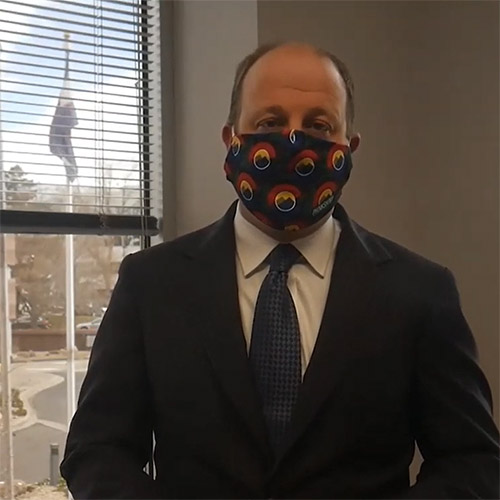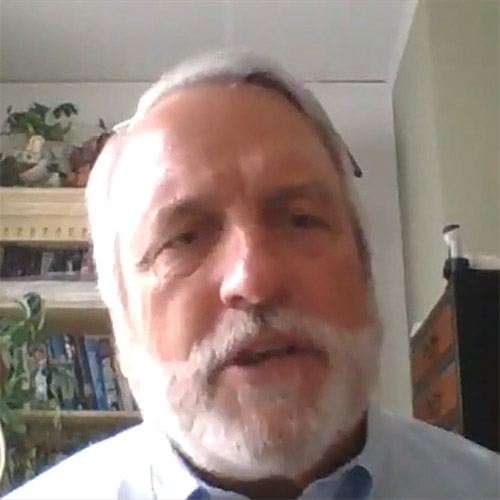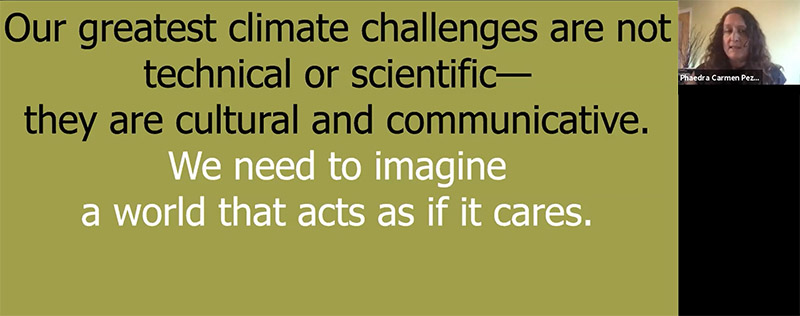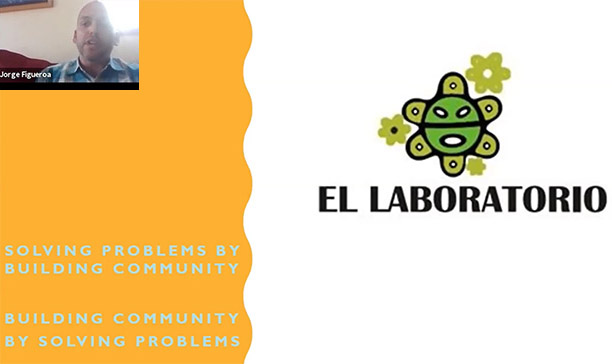Science Notes
April 2020
Power Dialog - Climate Solutions for Colorado
This month, CO LSEN PI Max Boykoff – along with Professor Phaedra Pezzullo (Department of Comunication) and undergraduate student Andrew Benham (Engineering) – co-organized a two-hour set of presentations and discussions of the intersecting influences of climate change, non-renewable and renewable energy as well as technological innovations that can alleviate negative impacts at the human-environment interface at the Colorado State level. The prepared remarks and conversations throughout the event also addressed important dimensions of just transitions for workers and for residents in the state as researchers, policy decision-makers, practitioners and Colorado residents seek a more resilient, just, equitable and healthy future.
 Colorado Governor Jared Polis. |
Originally, the event was planned as part of a University of Colorado conference called the ‘Conference on World Affairs’. As the physical distancing mandates were put in place and through an abundance of caution, the event pivoted to an online gathering. As such, the archive from the event can be viewed here.
Event moderator and CO LSEN PI Max Boykoff started off the session by introducing a pre-recorded statement from current Colorado Governor Jared Polis. While ‘walking the walk’ and wearing a mask, Governor Polis stated that confronting climate change in the 21st century remained a critical set of challenging amid the ongoing novel coronavirus pandemic. Governor Polis also noted that Colorado has been the first state to establish a ‘Just Transition Office’ “to think about communities that have been left behind.”
 Former Colorado Governor William Ritter |
This Colorado event was part of a national-level effort led by Eban Goodstein from Bard College in New York, with support from David Blockstein from the Association of Environmental Studies & Sciences called ‘Solve Climate by 2030’. Consequently, Governor Polis’s comments were followed by a short and pre-recorded statement from Eban Goodstein, who mentioned that the Colorado event took place alongside simultaneous events in 44 other US states as well as in Puerto Rico as well as in Washington D.C. and a number of international locations. Eban also commented, “We need to listen to and trust scientists, and act on their knowledge sooner rather than later”, referring to both climate change and the COVID-19 pandemic.
Following their pre-recorded comments, Max Boykoff then moderated a panel discussion with former Colorado Governor William Ritter, El Laboratorio Director Jorge Figueroa, and Professor Phaedra Pezzullo. Given the context, many links were made between climate change and COVID-19 during the prepared remarks and discussion that followed. For example, former Governor Bill Ritter pointed out that “this is a dual challenge that can be solved together”.
Among the great insights and observations shared by the panelists, Professor Pezzullo noted the critical links between environmental health and human health. She commented, “Clean air action should be integral to our COVID-19 Colorado and climate change response”.

 Furthermore, the panelists all touched on how this has been a time of accelerated learning and intense behavior change as well as thoughtful reflection that has all pointed to a collective capacity to make fundamental shifts in our shared lives when needed. Professor Pezzullo noted, “COVID-19 has proven the world is capable of radical behavioral change in a relatively short period of time if we are convinced lives depend on it”.
Furthermore, the panelists all touched on how this has been a time of accelerated learning and intense behavior change as well as thoughtful reflection that has all pointed to a collective capacity to make fundamental shifts in our shared lives when needed. Professor Pezzullo noted, “COVID-19 has proven the world is capable of radical behavioral change in a relatively short period of time if we are convinced lives depend on it”.
The Colorado event animated many of the issues, priorities and objectives put forward by this AAAS Colorado Local Science Engagement Network, and demonstrated the productive power of dialogue and discussion in uncertain times.
~ by Max Boykoff
